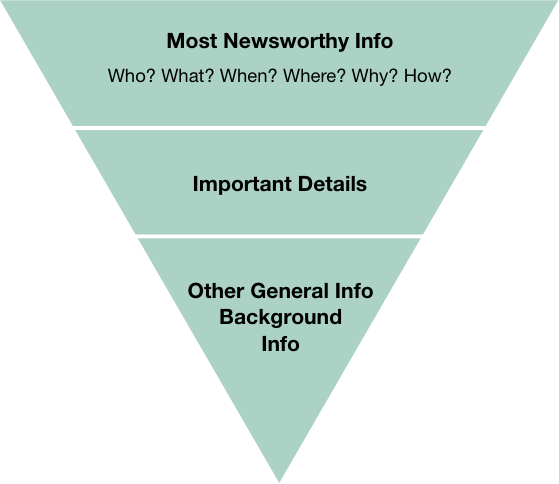Style Guide
REVOLVE is committed to communicating sustainability.
Follow our 10 tips to ensure your submission meets our REVOLVE STYLE.
10 Tips to REVOLVE style
1. REVOLVE uses US spelling.
2. Contribution format meets specifications in CHECKLIST FOR CONTRIBUTORS.
3. Write with an ACTIVE voice, not a passive voice.
4. Bold key words and concepts; use quotes and italicized text sparingly
(see ‘Things to watch out for’).
5. Embed hyperlinks to sources or for further reading within the text.
6. Do not underline texts (appears like an embedded link)
7. Tips for being clear, catchy, and informative:
✓ Use simple, action-oriented language ✓ Vary sentence length
✓ Be specific
✓ Avoid jargon
✓ Provide context
✓ Support positions with facts
✓ Use fit-for-purpose punctuation to let the reader breathe
✓Have a clear/strong/purposive ending
8. Keep tone light but not too informal. Do not be clichéd or try too hard!
9. Your piece should flow, be comprehensible and develop ideas in a logical way.
10. Reference to numbers, dates, currencies, and percentages are in accordance with REVOLVE Style (see ‘Things to watch out for’).
Inverted pyramid in journalism

Things to watch out for
Element
Approach
Hyperlinks
Embed hyperlinks as a resource for further reading (reference to a particular organization, directive, publication, etc.)
Italics vs. Bold
Use italics for non-English translations, words, and publications; bold can be used to emphasize terms and key words.
Ex: The leitmotiv is …
The ‘eco-blocks’ (manzanas verdes) were designed locally.
CAPITALIZATION
Do not capitalize entire words and use sparingly for technical terms. Do capitalize company names and places.
Exceptions: Member States, EU/national programs (Horizon 2020) and legislation (Water Framework Directive); people’s job titles within text are not capitalized.
Compass points and regions
Use lower case except for proper names (North Korea) or a political description (The South); vaguer areas are not capitalized (American north-east / western Europe).
Use upper case for definite geographical places, regions, areas and countries.
Political and EU terms
Capitalize institutions/political parties (European Commission/ Republican party) but not ideas (liberal, conservative, right, left, etc.)
Rank and title handling
Capitalize institutions/political parties (President Obama) but lower case when on their own (the president).
Use lower case for describing the office (the foreign secretary; the president of the United States; the prime minister; the speaker, etc.
Some exceptions exist for exalted figures like Lord Chancellor, God.
Punctuation / Bullets
Apply standard rules of grammar.
Do not punctuate short lists. Example:
The goals were simple:
• Start a culture of change
• Save money
• Save the environment
Use en-dashes (–) to separate clauses (see hyphens and dashes).
Quotation marks
Use double quotes for quotation and single marks for emphasis. Commas/end punctuation go in front of the closing quote mark. Use past tense said for referred speech after an event or the fact, but present tense says for interview-style articles to create a livelier text. Use single quotes to refer to a specific thing someone said or notion: The ‘promise’ of getting a peace deal/ Kant talks of ‘perpetual peace.’
Symbols (e.g., %, €, $, i.e., CO2)
Use the € symbol (no space between numeral) for amounts. For other currencies, either convert to euro or add euro equivalent in brackets. Add periods between i.e. and e.g.; use sub-scripts for chemical formulas (e.g. CO2)
Never write out percent – use % unless it is the first word of a sentence.
E.g. Fifty-percent of all respondents…
Be concise
As our content remains online it is important your content remains readable in the future. To ensure this do not use words such as currently or recently – instead use precise dates.
Dates
Date order is day/month/year (31/05/2017); written in texts as 8 May 2017. For a century, use the superscript: 21st century
Numbers and dates
Never begin a sentence with a numeral – write out ‘Fifty’.
Use commas e.g. 5,000 or 50,000 but write out 5 million; numbers from one to ten (inclusive) are spelled out as words, thereafter as numerals (but if the number is connected to a measurement, use only numerals (e.g. 9 kilometers or 9 km). Other measurements: Celsius (20°C); kilograms (80 kg); time (11:30 am); prices in euros (€78.50); percentages (10%) – use the % symbol, never spell out ‘percentage’.
Hyphen and dashes
REVOLVE uses the en-dash (–), NOT the longer em-dash (—), including a space either side of the previous and last word separating the clause.
Hyphens and compounds for long words are commonly used together, such as cross-reference and when describing a noun. (Long-term project, a high-tech solution).
BUT no hyphen when describing it after the fact (poorly paid position). Hyphens also connect titles (director-general, vice-president, policy- maker) except homeowner, lawmaker, landowner.
Nouns formed from prepositional verbs use a hyphen (bail-out, lay- off, stand-off, get-together set-up); exceptions are commonly joined words (handout, payout). Hyphens are typically used for nouns such as get-together, while it does not carry a hyphen when it is a verb (I want to get together vs let’s have a get-together.)
REVOLVE does not use hyphens for bioeconomy, biowaste, bioenergy, etc.
Use a dash for sea-level.